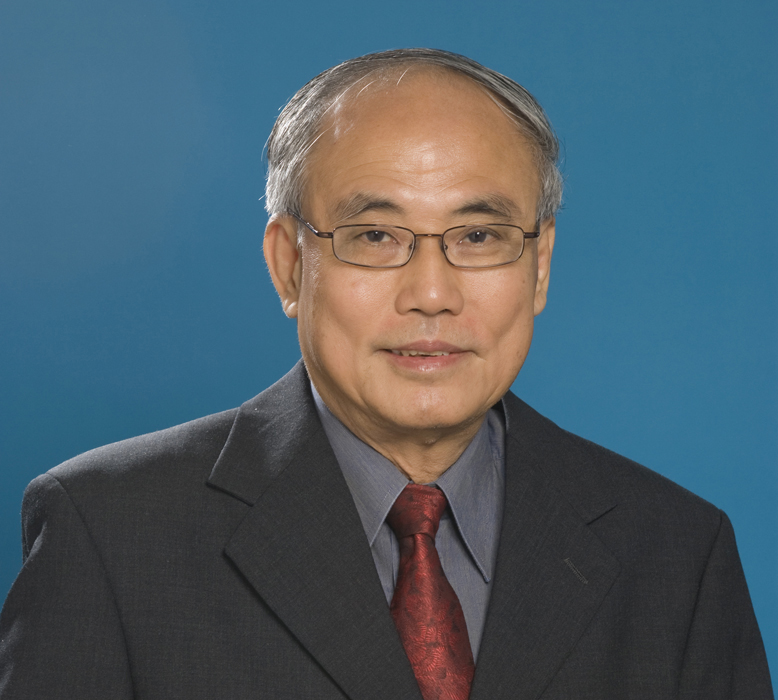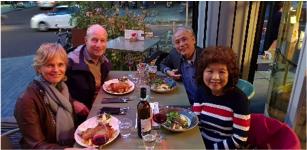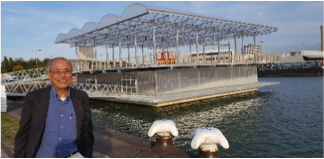President’s Message
Message 14/2018

Mr Lim Soon Heng, PE, FIMarEST.
Founder President
A visit to the World’s Most Eco-friendly and Sustainable Farm, Rotterdam 12 Oct 2018
It was an unseasonably warm day when my wife and I called at the office of Minke and Peter van Wingerden. I was pleased to see the Society’s momento which we presented to Peter for his speech in Singapore in August on visible display on top of his cabinet.
After coffee, we went down to the harbour area where the farm was under construction. To my surprise there was this marquee outfitted like a lecture room with charts, drawing boards, projectors, a paraphernalia of display items and tables and chairs. “We have a constant stream of visitors every week from not only Europe but also China, Japan and Singapore who want to know about the project, so we decided to construct this lecture room.” Peter explained. There were congratulatory messages of visits including some from several government agencies from Singapore.
Peter then gave us an in-depth tour around the floating farm from the top to the bottom deck. Fortunately, it was past work hours, so we were not in the way of technicians running around fitting out equipment. The project receives wide coverage in articles and videos online. I would urge the reader to learn more by googling.
At the end I was utterly convinced that this project is one of the eco-friendliest farms I ever saw or read about. Not only is the poo from the cows recycled to fertilise the grass growing on top, the farm could be moored close to a brewery and feed off the discarded processed grains in a win-win situation for both farm and brewery. Water from the river on which such a farm floats can of course be used to keep the grass fresh. Cattle has one of the largest water footprints in the food industry, so this is important. The cost of using municipal water from miles away is eliminated.
I am glad that many government officers from NEA, NParks, HDB, URA, JTC have made visits to this farm to better appreciate the fact that farms, be it for animals, or vegetables need not be on land which is so scarce here. Ideal locations for these farms are on the outside of the barrages of Tengeh, Kranji and Lower Seletar Reservoirs where they are not in way of shipping lanes and have access to fresh (but untreated) water.
Minke and Peter graciously took us out for dinner and to take in the sights of the Rotterdam in the night. The perfect day ended in a perfect evening.
Many thanks to Minke and Peter and good wishes for your success in your endeavour to solve the world’s food crisis and climate change.
Lim Soon Heng
2 Dec 2018


